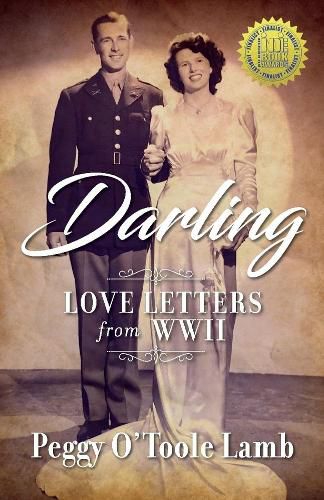Readings Newsletter
Become a Readings Member to make your shopping experience even easier.
Sign in or sign up for free!
You’re not far away from qualifying for FREE standard shipping within Australia
You’ve qualified for FREE standard shipping within Australia
The cart is loading…






In 1942 at the beginning of the United States entry into WWII, Frank enlisted in the army and soon rose to First Lieutenant in Patton’s Third Army. After grueling training in the Anti-Aircraft Artillery (A.A.A.) in the Desert Training Center, Frank shipped out to the European Theater of Operations in April 1944. He left his new wife Catherine and their newborn son John after only holding his child for an hour in the hospital.
Frank wrote letters to his wife, who kept them hidden in a tin box until found in 2015 after her death. Frank’s communication reveals little about the war due to security, rather more about his love and longing for home and family. As an orphan, Frank always wanted a family, and now he feared he might not return to his wife and child. Still, he had a duty to his country and was determined to fight for freedom against the Nazis.
Frank’s story emerges not only from his letters but from the declassified Third Army’s After-Action, the 546th A.A.A. Morning Reports, and Patton’s diary detailing what had happened during the battles and campaigns. Frank’s letters spared Catherine the gruesome details of war; instead, he shared stories of camaraderie, the beautiful countryside, and his longing for her and his son.
Lamb uses the letters to look through Frank’s lens and writes as if he is telling the story, expressing feelings of happiness, sadness, frustration, anger, and love. Darling captivates the reader as if the action is happening in the present time, never knowing when it will all end.
$9.00 standard shipping within Australia
FREE standard shipping within Australia for orders over $100.00
Express & International shipping calculated at checkout
In 1942 at the beginning of the United States entry into WWII, Frank enlisted in the army and soon rose to First Lieutenant in Patton’s Third Army. After grueling training in the Anti-Aircraft Artillery (A.A.A.) in the Desert Training Center, Frank shipped out to the European Theater of Operations in April 1944. He left his new wife Catherine and their newborn son John after only holding his child for an hour in the hospital.
Frank wrote letters to his wife, who kept them hidden in a tin box until found in 2015 after her death. Frank’s communication reveals little about the war due to security, rather more about his love and longing for home and family. As an orphan, Frank always wanted a family, and now he feared he might not return to his wife and child. Still, he had a duty to his country and was determined to fight for freedom against the Nazis.
Frank’s story emerges not only from his letters but from the declassified Third Army’s After-Action, the 546th A.A.A. Morning Reports, and Patton’s diary detailing what had happened during the battles and campaigns. Frank’s letters spared Catherine the gruesome details of war; instead, he shared stories of camaraderie, the beautiful countryside, and his longing for her and his son.
Lamb uses the letters to look through Frank’s lens and writes as if he is telling the story, expressing feelings of happiness, sadness, frustration, anger, and love. Darling captivates the reader as if the action is happening in the present time, never knowing when it will all end.